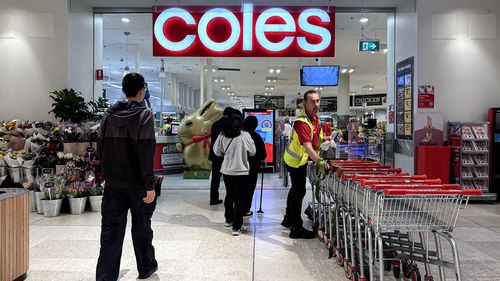Share this @internewscast.com
Australian shoppers are cutting $315 off their annual grocery expenses by opting for fresh produce nearing its expiry date, but a leading retailer suggests these discounts are becoming less common.
Recent findings by ING bank indicate that 86 percent of consumers participate in this practice, collectively saving $5.3 billion across Australia each year.
The most common items include fresh meat, poultry, seafood, bakery products and fresh produce.

On average shoppers are buying the close to expiry items two-and-a-half times a month, which equates to an average of 30 times a year.
Leading retail expert Gary Mortimer said the phenomenon is “not surprising” as savvy shoppers have been “doing this for years”.
“Supermarkets are increasingly adopting sophisticated AI inventory systems to accurately forecast demand, thus reducing over-ordering and the subsequent need for markdowns,” Mortimer explained.

“Buying marked down products as close to the use by date as possible is certainly a great way to save but you will generally find it’s getting harder and harder for consumers to find this in major supermarkets as they combat food waste.
“The big focus is around reducing food waste. We’ve seen many food retailers looking at how do they mitigate having to mark products down.
“It could be things like they will donate food to charity food banks rather than mark it down so that it’s going to needy families.”

The ING study also revealed that Australians could save an additional $1159 per year by ditching the mid-week impromptu top up shop.
“Over a period of time we used to shop once a week or once a fortnight, when people got paid they did their big grocery shop,” Mortimer said.
“We’re now seeing that the basket size is getting smaller but people are shopping more frequently.

“The other reason why we see consumers less likely to do a big weekly shop is that upfront cost.
“When it’s $160 or $180, that’s a big cost, so when you do shopping for a couple of days and it’s $39 or $40, it doesn’t seem to be a big expense.
“What we actually fail to do is calculate that over the entire week and find that we’re probably spending the exact same amount of money.”
Two apps launched in Sydney last year to help residents snap up discounted meals and groceries from shops, cafes and restaurants.













